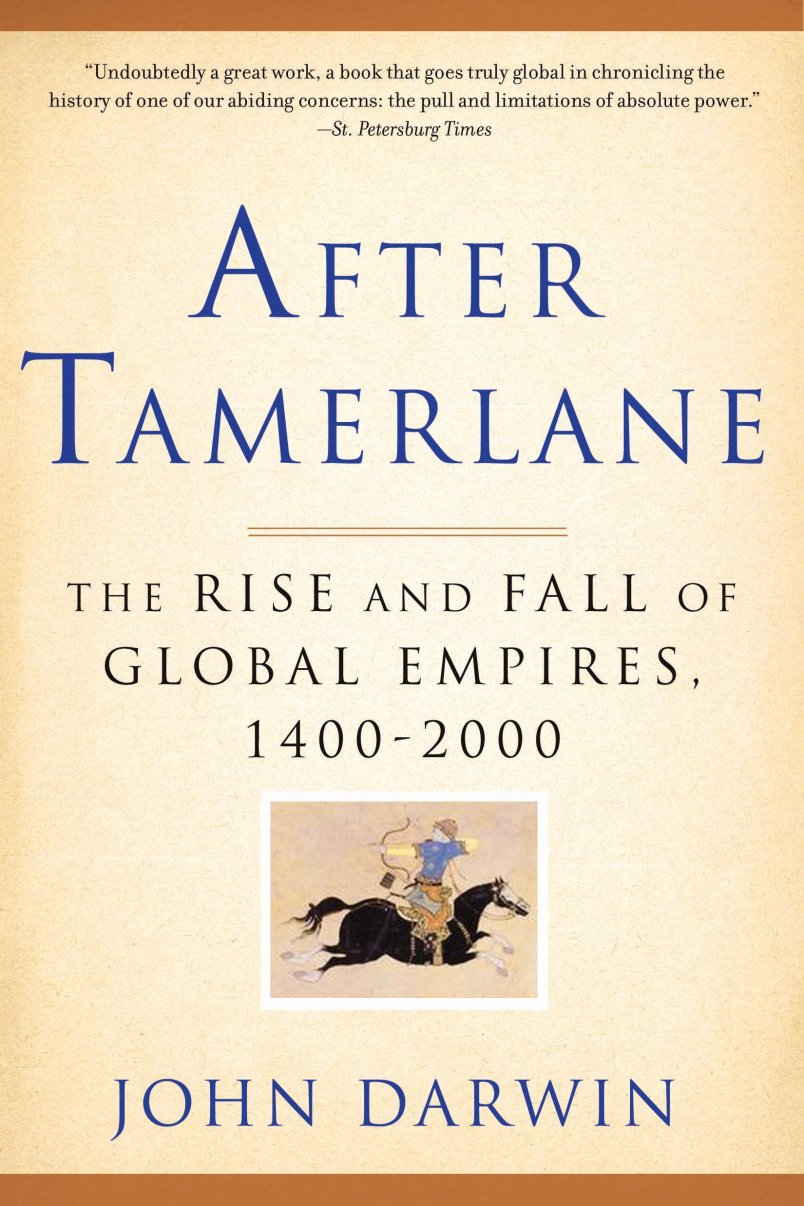Following up on my review of Pathfinders, I wanted to return to another book that I discussed a few years ago. This is actually a revised version of an earlier review. But I’m returning to it because this is another book that centers on this basic historical question of why did Europe dominate the last two or three centuries of global history. It is a fascinating question and one that is only now quite approachable as dominance of Europe and now North America’s extension of Europe has begun to recede.
The book is After Tamerlane. And I’m flagging this book because there are few books I’ve read which have so significantly reoriented my understanding of the broad scope of modern history. In fact, I cannot think of the last one that has done so in quite this way.
From every good history book you learn about what’s core to history: change over time. You become acquainted with a different time and place, a different world, which the past always is. The question at the center of this book is why did western Europe come to so totally dominate the globe in the modern era. Darwin’s central argument is that the decisive developments came comparatively late – in the late 18th century – and that the whole rise to primacy was much more contingent than we realize.
A future of european dominance wasn’t so clearly in the cards as we might think in say 1600 or even 1700. And what did kick into effect after 1750 – a mix of technological and economic takeoff, particularly in England – required contemporaneous but not inevitable dislocations and breakdown in the other great civilizational centers of Eurasia. In other words, a whole series of largely unrelated developments had to come together at once to bring us the ‘modern world’ of the last 250 years as we know it. And we should probably be looking less at embryonic developments in Europe in say 1200 or 1450 to understand how it all happened.
My own sense is that Darwin gives a little less emphasis than he should to the significance of west European global seafaring (and map making) than he does, though I should add it’s a central part of his argument. Darwin makes a big point of the fact that while Europeans had developed a global network of maritime trade by the late 16th century, outside of the Americas these were at best only tiny beachheads on the coasts of vast continental civilizations in India, China and Africa. Fernandez-Armesto makes a similar point in Pathfinders, that the European seafaring ’empires of the 16th and even 17th centuries only look imposing because we view them through the prism of the sovereign empires they grew into in the 19th and 20th centuries.
All true. But the fact that Europeans were becoming knowledgable about the totality of the globe, in geographical, civilizational and commercial terms, while the other great world civilizations were not, is a matter of the greatest significance, even though it wasn’t directly related, except in very limited ways, to superior wealth, technology or firepower.
In any case, small disagreement if even that, perhaps more a difference in emphasis. It’s a really fascinating book and I recommend it. You can click here to find out more of buy a copy.






